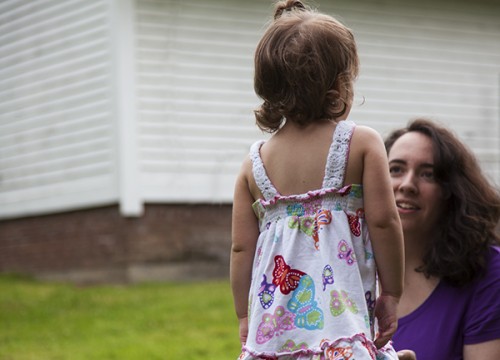 I am not a mother, but I am a daughter and as such I may just have the experience to witness and the objectivity to comment on, an unique aspect of motherhood: mothers' guilt. It seems to inflict almost every mother I know from my own to my sister-in-law to my student, who tonight was blaming herself for the rough patches her daughter has gone through in life. “If only I had been a better mother,” she sighed.
I am not a mother, but I am a daughter and as such I may just have the experience to witness and the objectivity to comment on, an unique aspect of motherhood: mothers' guilt. It seems to inflict almost every mother I know from my own to my sister-in-law to my student, who tonight was blaming herself for the rough patches her daughter has gone through in life. “If only I had been a better mother,” she sighed.
My own mother said the same thing to me only a few hours before when I was complaining about some relatively minor problem I was experiencing as if it was truly the end of the world and indeed as if she was to blame. It wasn’t that I held her responsible, it was that I needed a way to lash out, to expel my anger and grief over life’s obvious injustice, and as my mom she was the ready recipient. And, so I could tell my student with 100% certainty that her daughter’s sorrows were not her fault. “It’s mother’s guilt,” I explained. “You could be the most perfect mother in the world and still not get it right – she’d always blame you. It’s in the job description.”
And, so it is -- love and guilt being equal measures on the parenting scale. Funny thing is those moms who feel the most guilt are the least likely to warrant it. A truly bad mom probably doesn’t think twice about the effects of her parenting. A good mom? That’s pretty much all she thinks about.
This weekend I had the opportunity to watch my 20-month-old niece Ellie. Our march to the park yielded a steady stream of chatter: “Good morning Ellie,” my niece sang to herself. “We’re going to the park, going to the park. Nice park. We made it. Good job Ellie,” she praised and congratulated herself amidst her laughter and her squeals. Not long ago, I told my sister-in-law what a good mother she is and through teary eyes, she told me how she worries all the time about whether she’s getting it right. Looking at my niece, listening to her steady stream of self-praise, glimpsing her growing confidence, there is no question.
Life’s a strange adventure. “As long as they come out walking, you did your job,” I assured my student. We laughed over that. She outwardly acknowledging that I was right, but as certain as I was that this was so, I was equally certain she would never really believe it. Nor would my mother, nor sister-in-law nor Ellie, if she were to have children 20 years from now. Guilt like love is an umbilical cord that binds; even if severed it grows back, a steady anchor in an uncertain sea. Guilt gives mothers some measure of comfort, an illusion of control, a belief that their hands somehow navigate through the blinding fog of life and guide their children, even if they fall short. It is more reassuring than the truth: all one can do is her muddled best, try to give her child a song to sing and a measure of chutzpah to congratulate herself no matter what she encounters. In the end, guilt is the sister of hope, leading a good mother to willingly don it on the chance that its heavy weight will free her child to soar.
